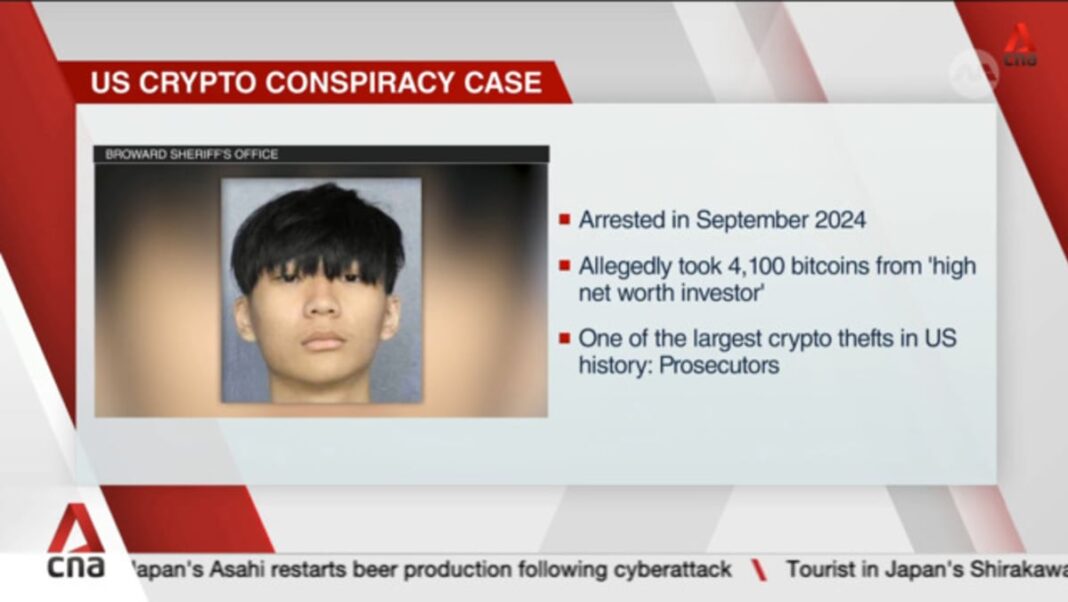Market Pulse
As the specter of a potential U.S. government shutdown once again hangs over Washington, D.C., the cryptocurrency industry finds itself bracing for significant repercussions. Investment banking firm TD Cowen has issued a stark warning, highlighting that a federal closure would effectively freeze the Securities and Exchange Commission’s (SEC) operations, thereby stalling crucial crypto regulatory advancements and market developments. This looming uncertainty underscores the delicate balance between legislative gridlock and the burgeoning digital asset ecosystem.
The Looming Regulatory Stalemate
A U.S. government shutdown occurs when Congress fails to pass appropriation bills, leading to the cessation of non-essential government agency functions. For the crypto sector, the primary concern revolves around the SEC, the principal regulator overseeing securities markets, including many digital assets. During such an event, a substantial portion of the SEC’s workforce is furloughed, drastically limiting its capacity to process applications, issue guidance, or engage in enforcement actions.
TD Cowen’s analysis points out that ongoing discussions regarding new crypto regulations, reviews of spot Bitcoin ETF applications, and efforts to establish clearer legal frameworks for various digital tokens would be immediately put on hold. This regulatory paralysis could extend for weeks or even months, depending on the duration of the shutdown, creating an unpredictable and potentially hostile environment for innovation and investment within the U.S. market.
Broader Industry Impact
The implications of a prolonged regulatory freeze are far-reaching for the crypto industry. Companies seeking to launch new products, list tokens, or gain clarity on their regulatory standing would face indefinite delays. This bureaucratic bottleneck not only stifles innovation but also discourages foreign investment, potentially driving crypto businesses to more regulatory-friendly jurisdictions.
- Delayed Product Approvals: Applications for new crypto-related financial products, such as additional spot ETFs for various cryptocurrencies, would cease processing.
- Uncertainty for Startups: New blockchain projects and startups would struggle to obtain necessary approvals or clear guidance, hindering their ability to operate legally and attract funding.
- Reduced Enforcement Capacity: While some critical enforcement actions might continue with essential personnel, the overall capacity to address market manipulation or illicit activities could be compromised, potentially increasing market risks.
- Stalled Policy Discussions: Congressional hearings, legislative proposals, and inter-agency collaborations aimed at comprehensive crypto regulation would grind to a halt, setting back long-term policy development.
- Market Sentiment Decline: The perception of a dysfunctional regulatory environment can erode investor confidence and contribute to negative market sentiment, potentially leading to price volatility.
Historical Precedent and Future Outlook
Past government shutdowns have offered glimpses into the potential disruption. During previous closures, federal agencies responsible for economic oversight saw their operations significantly curtailed, affecting everything from economic data releases to market monitoring. For the crypto industry, which already operates in a nascent and often uncertain regulatory landscape, such a pause is particularly detrimental. It highlights the vulnerability of a rapidly evolving technological sector to traditional political impasses.
Should a shutdown materialize and extend, the crypto industry would likely see a continued push for self-regulation or a heightened focus on jurisdictions with more established and predictable frameworks. For firms reliant on U.S. regulatory approval, a waiting game would ensue, forcing them to adapt strategies or face significant operational delays. The long-term consequence could be a further divergence of crypto innovation away from the United States, impacting its global competitiveness in the digital asset space.
Conclusion
TD Cowen’s warning serves as a critical reminder of how governmental dysfunction can directly impede the progress of a vital emerging industry. A U.S. government shutdown would undoubtedly introduce a period of heightened uncertainty and regulatory stagnation for the cryptocurrency market. While the industry has demonstrated resilience in the face of various challenges, a prolonged freeze on regulatory activities risks undermining efforts towards clarity, stability, and mainstream adoption. Stakeholders will be closely watching developments in Washington, hoping for a swift resolution that allows critical regulatory work to resume.
Pros (Bullish Points)
- Highlights the fragility of centralized regulatory systems, potentially sparking further interest in decentralized governance models.
- May provide a pause for crypto firms to re-strategize their compliance efforts without immediate new regulatory mandates.
Cons (Bearish Points)
- Significant delays in crucial regulatory clarity and product approvals, stifling innovation and market growth.
- Increased uncertainty and potential for negative market sentiment, deterring institutional and retail investment.
- Risk of the U.S. falling behind other nations in establishing a comprehensive and supportive crypto regulatory framework.
Frequently Asked Questions
What is a U.S. government shutdown?
A U.S. government shutdown occurs when Congress fails to pass legislation funding government agencies, leading to the temporary closure of non-essential services and furloughing of federal employees.
How would a shutdown affect the SEC's operations?
The SEC's operations would largely cease, with most staff furloughed. This would halt work on new regulations, enforcement actions, and the review of applications for crypto-related financial products like ETFs.
What are the primary implications for the crypto industry?
The main implications include stalled regulatory progress, indefinite delays for new product approvals, increased market uncertainty, and a potential exodus of crypto innovation to more stable regulatory environments.



